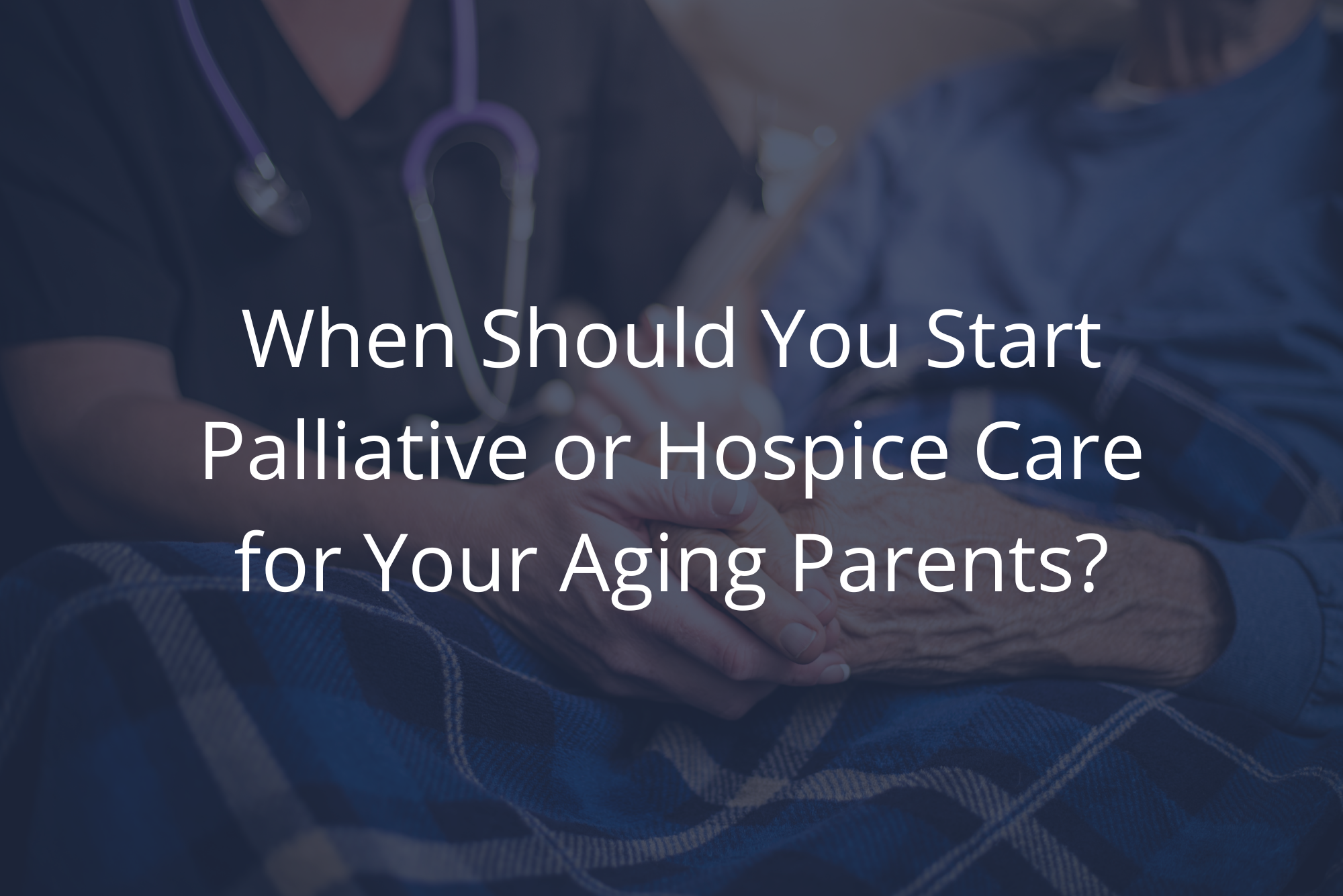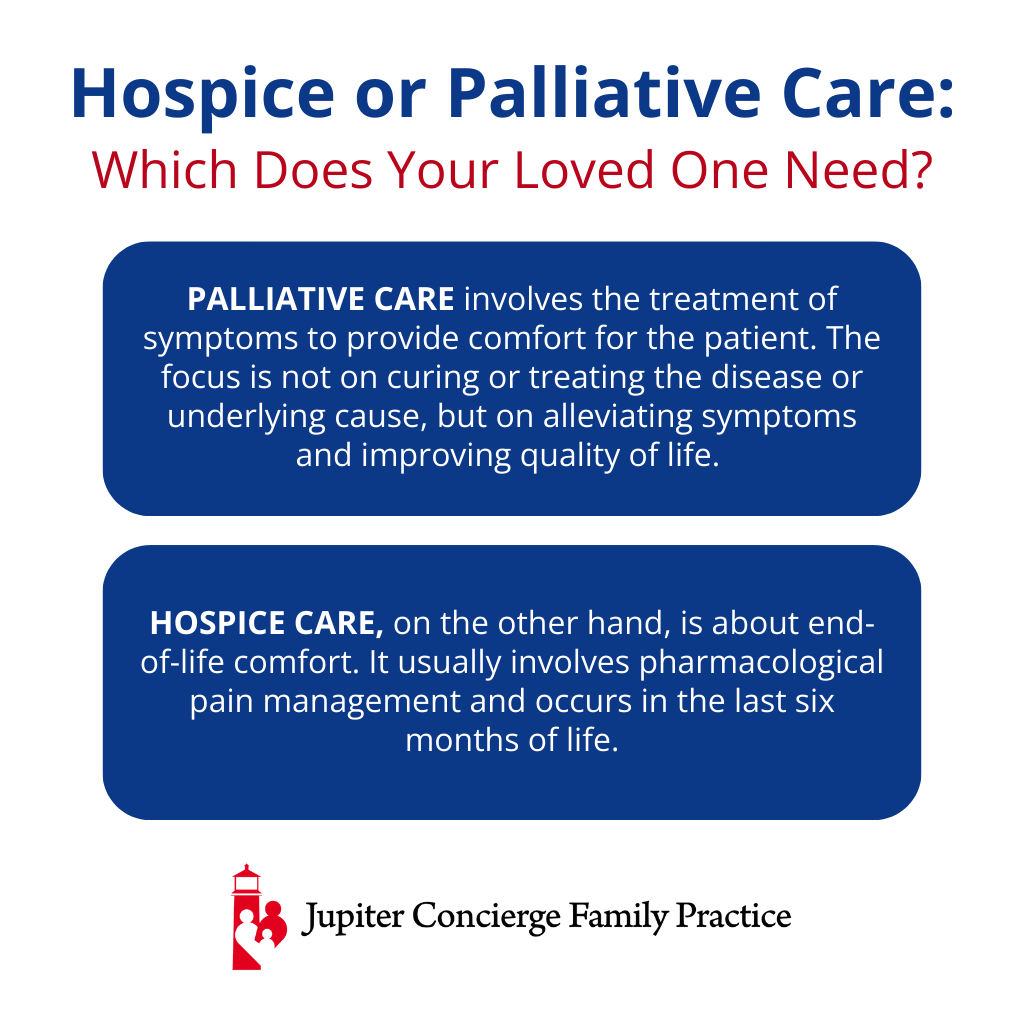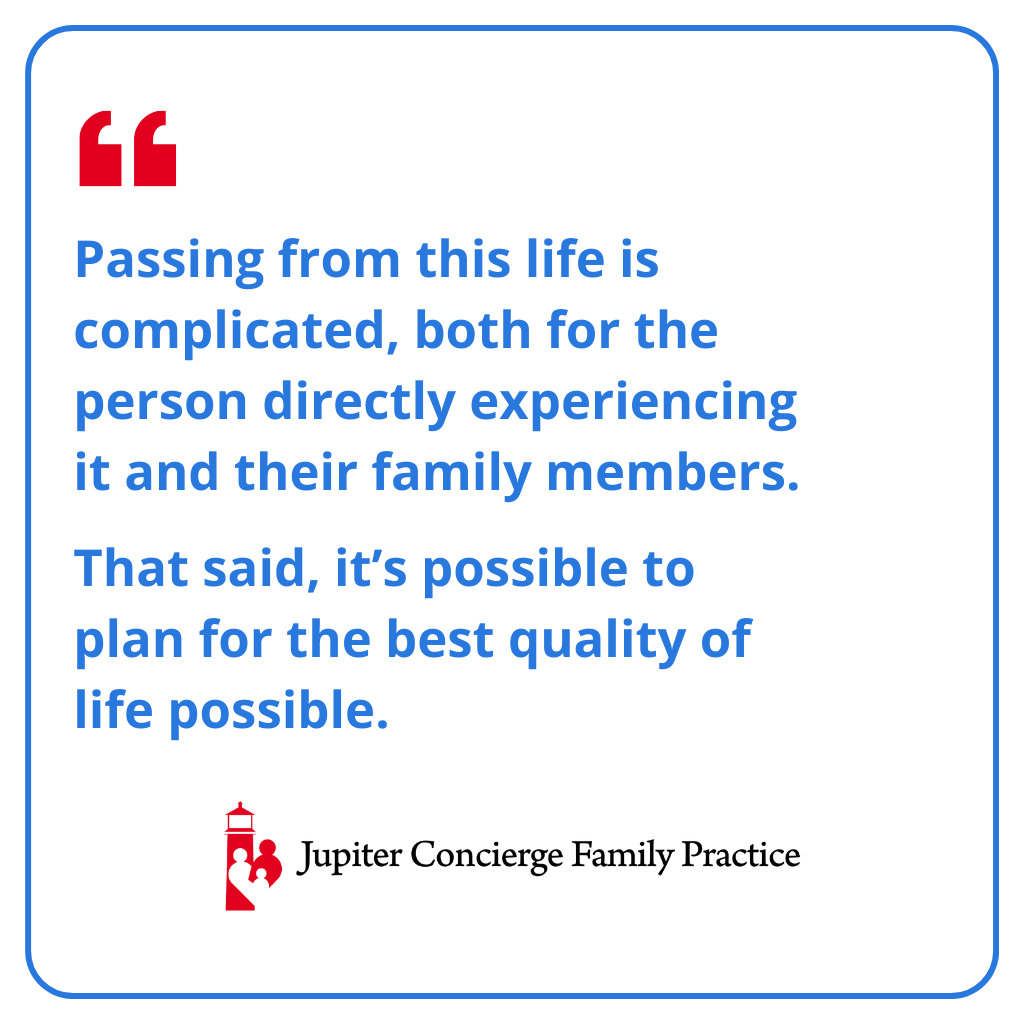
Many of my patients are caregivers — or care organizers — for their aging parents. One of the most challenging aspects of the role is knowing how and when to start palliative or hospice care. I hope this post can illuminate the stages of end-of-life care.
Hospice or Palliative Care: Which Does Your Loved One Need?
Let’s clarify the terms palliative care and hospice care.
Palliative care involves the treatment of symptoms to provide comfort for the patient. The focus is not on curing or treating the disease or underlying cause, but on alleviating symptoms and improving quality of life. However, disease treatment may occur alongside palliative care.
Hospice care, on the other hand, is about end-of-life comfort. It usually involves pharmacological pain management and occurs in the last six months of life.
For example, if someone has chronic obstructive pulmonary disease (COPD), we give them oxygen to manage the symptom of shortness of breath. This palliative care doesn’t do anything for their illness per se, but it improves their quality of life.
At this stage, they don’t go into hospice care because they’re not at the end of their life. If the disease progresses to the point that their physician determines they have fewer than six months to live, however, the COPD sufferer may move into hospice care.
When to Start Palliative or Hospice Care
The question of palliative or hospice care usually comes up when people notice that their aging parents are in and out of the hospital every couple of weeks.
Often, the reason for hospitalization is simply symptom control. At this point, it’s useful to re-examine the situation. Is repeated hospitalization really helpful? Could you manage symptoms more comfortably in another setting?
Another hint that the time for palliative or hospice care may have arrived is when a patient doesn’t want invasive testing or when difficult treatment will drastically diminish their quality of life. For example, elderly patients with cancer sometimes choose to forego chemotherapy, opting instead to live the best they can with palliative care, followed by hospice care.
Walking the End-of-Life Path With Your Loved One
Passing from this life is complicated, both for the person directly experiencing it and their family members. Despite our best efforts, there’s no getting around the fact that this transition is tough by nature. That said, it’s possible to plan for the best quality of life possible.
If you are caring for, or are planning to care for, an aging parent, consider these suggestions:
- Discuss end-of-life care long before it’s needed, perhaps as part of estate or legacy planning or retirement.
- Address the details with your loved ones while they’re relatively well and mentally competent.
- Approach these conversations in a loving, sensitive manner. Reinforce that you want to know their wishes so you can express them if your parent becomes unable to.
Your doctor should be an advocate and health partner, a resource to guide you and/or your parents through these confusing times.
 When to Start Palliative or Hospice Care: Conclusion
When to Start Palliative or Hospice Care: Conclusion
End-of-life care involves many difficult choices. If you don’t yet have an advance directive (or living will), consider making one so that your wishes are clear. Such forethought is an unselfish way to unburden your loved ones later down the line.
If you’re walking with a parent or family member through end-of-life decisions, know that between palliative care and hospice, you have options to keep your loved one as comfortable as possible.

Dr. David Rosenberg
Dr. Rosenberg is a board-certified Family Physician. He received his medical degree from the University of Miami in 1988 and completed his residency in Family Medicine at The Washington Hospital in Washington, Pennsylvania in 1991. After practicing Emergency Medicine at Palm Beach Gardens Medical Center for two years, he started private practice in Jupiter, in 1993. He is an avid baseball fan and Beatles fanatic, since he was 8 years old. He has been married to his wife, Mary, since 1985 and has three grown children.
David completed additional studies at Mercer University, Macon, Georgia and obtained a BS in Chemistry in 1983.
“My interests include tennis, snow skiing, Pilates and self-development.”

